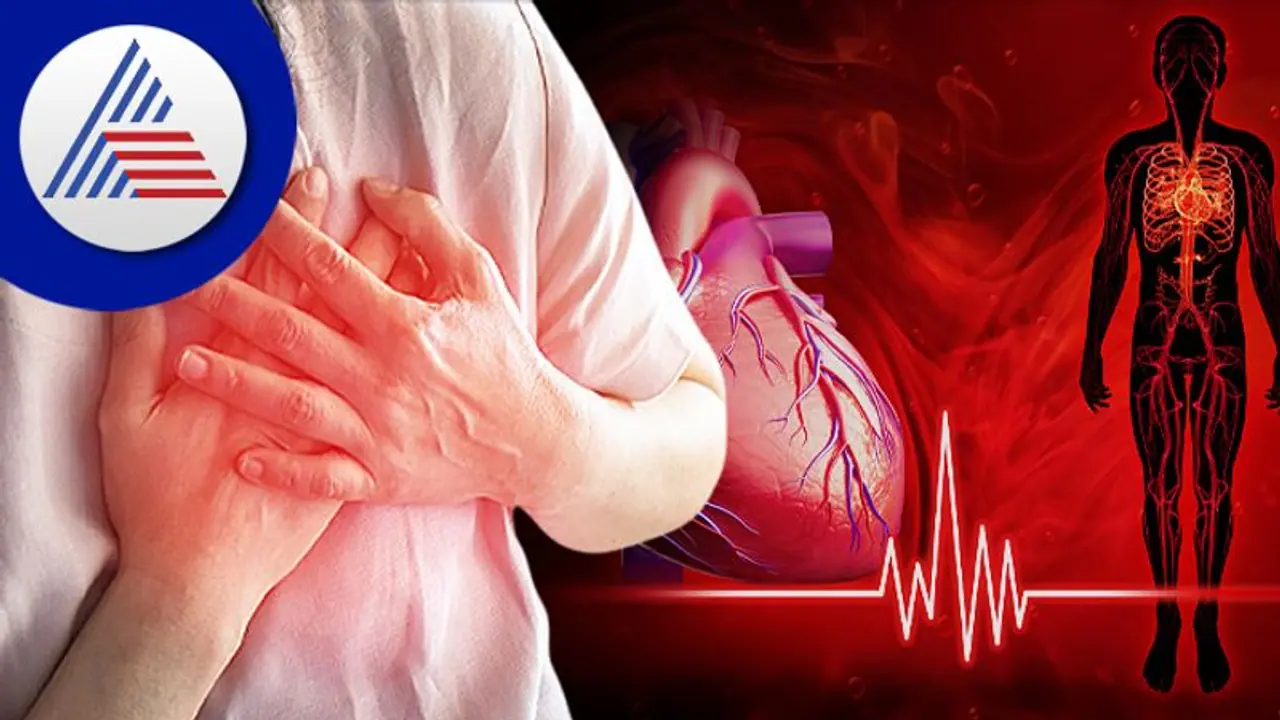Lifestyle choices, lack of sleep, nutritious food and exercise, and increased stress levels are probably responsible for heart attacks in young people, experts believe.
Lifestyle choices, increased stress levels, lack of sleep, nutritious food and exercise are primary causes of the rise in cases of heart attacks in relatively younger people, say experts. The recent case of comedian-actor Raju Srivastava (58) suffering a heart attack has again put the issue in the spotlight. In May this year, singer KK (53) died of cardiac arrest after a concert in Kolkata.
Last year, actors Siddharth Shukla (40), Puneeth Rajkumar (46), Amit Mistry (47) died due to cardiac arrest. Dr Nikhil Parchure, a cardiologist at the Apollo Hospital in Navi Mumbai, told PTI that the heart attack rate has doubled in India in the last 20 years, and more young people are now prone to it.

Also Read: What is Myocardial Infarction? Did it lead to Raju Srivastava suffering a heart attack?
He said 25 per cent of all heart attack cases are seen in people below 40. Smoking is the most important risk factor like diabetes, high blood pressure and cholesterol. Lifestyle choices, lack of sleep, nutritious food and exercise, and increased stress levels are probably responsible for heart attacks in young people, he said.
Also, COVID-19 has been recently responsible for an increase in heart attack cases among young people in India.
Dr Ajit Menon, consultant, cardiac sciences at the Sir HN Reliance Foundation Hospital in Mumbai, claimed India is becoming the "diabetes capital" of the world and said this is also why young people are prone to heart attacks. He said that the number of young hypertensives is dynamically increasing, and the factor leading to it is stress. Menon also pointed out the physiology of Indians as another factor.
Also Read: 5 tips that will protect you from a heart attack
"If you look at the average Indian, they have a much higher fat content than an average European of the same Body Mass Index (BMI), which means the same height and weight, and that difference is quite staggering, he said. An average European's fat content is seven to eight per cent, whereas that of an Indian is almost 12 to 23 per cent in terms of visceral adiposity, he said.
Something that was touted earlier and is still relevant is called the thin, fat Indian. This means the person will look thin from the outside. Still, his visceral content of fat, which eventually determines that the patient will develop any atherosclerotic disease and blockages etc, is on a much higher side for Indians compared to Westerners who have a much better muscle mass than Indians, he said.
Also Read: 4 tips to make the weekend special with your partner
Family history plays a powerful role, and especially if the mother had a heart problem at a young age, the chances of children getting it are also reasonably high. Genes is one thing which you cannot alter, irrespective of what you do, Menon said.
Whatever lifestyle you lead, if your genetic tendencies are extremely high, there is a very strong possibility that you will develop blockages sooner or later. So you need to assess yourself periodically beyond a certain age.
Dr Ramakanta Panda, leading cardiac surgeon and head of Mumbai's Asian Heart Institute, also pointed to genetic tendencies as an important factor. Other common reasons for heart issues in the young include a strong family history of heart disease, co-existing medical conditions such as diabetes and hypertension, lifestyle problems such as smoking, obesity, stress, lack of exercise and environmental pollution, he said.
Also Read: Do you have Type-2 Diabetes? Here are ways to manage it without insulin
He said sudden death is more common in young people because their body has not developed an alternative circulation. This is not so in older people as they develop blockages over time and their body gets enough time to get accustomed to the change, he said.
Daily exercise for 30 to 45 minutes can keep the body fit and free from many diseases and health conditions like diabetes, hypertension, and obesity, Panda said. This in turn helps prevent cardiac disease. But, he also cautioned youngsters about not hydrating their body enough before a strenuous exercise.
When you do not hydrate but exercise heavily and sweat, the blood becomes thicker and you may develop a clot. Also, exercising beyond your capacity causes stress, which may result in the rupturing of an artery. Youngsters must guard against this, he said.
Panda said periodic screening tests are needed to identify the problem early so that proper treatment may be given before significant damage to the heart. Common screening tests include electrocardiogram (ECG), 2D echocardiogram, stress test, and CT scan for coronary calcium.
Cardiac screening tests are advisable once a year or once in two years after the age of 40 in the general population or after the age of 30 in the high-risk population, Panda said.
Dr Mohit Garg, consultant and head of the accident and emergency department at the Global Hospital in Mumbai, said if cardiac arrest is left untreated, irreversible brain damage occurs within three to eight minutes, and death rapidly follows. Even in patients who are resuscitated or revived from cardiac arrest, he said that brain injury is the main cause of death and the main cause of long-term disability in those who survive the acute phase.
